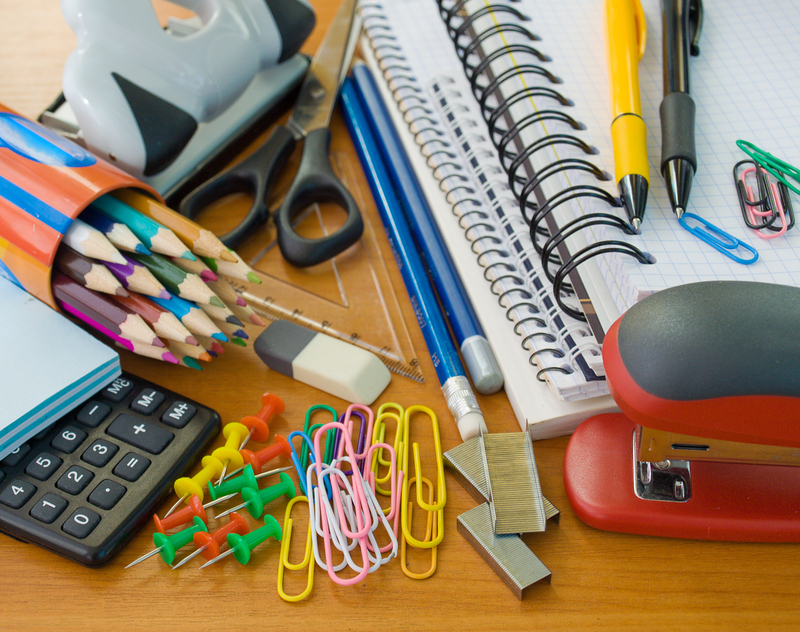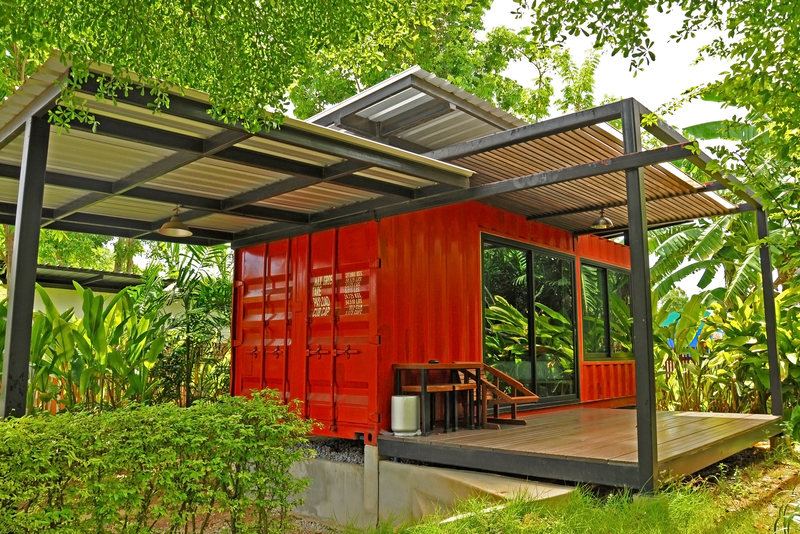Transforming Waste into Play: Recycling for Kids
Imagine a world where waste isn't just thrown away but is transformed into wonderful creations and endless playtime fun! Teaching kids about recycling and the creative possibilities it offers can have a lasting impact on the planet and their imagination. In this comprehensive guide, we will explore innovative ways to recycle for kids, turning everyday trash into treasures for play and learning.

Why Recycling for Kids Matters
Our environment faces a growing problem with waste, but one of the best ways to tackle this issue is by starting early and instilling eco-friendly practices in children. By educating children about recycling, we empower them to become responsible citizens who care for our Earth. More importantly, we make environmental stewardship fun and engaging! Transforming waste into play not only reduces what goes to landfills but also enhances creativity, problem-solving skills, and teamwork among children.
Benefits of Recycling Projects for Kids
- Promotes Environmental Awareness: Recycling teaches kids the importance of conserving natural resources.
- Encourages Creativity: Using materials otherwise considered trash to create toys or art sparks imagination.
- Improves Motor Skills: Cutting, gluing, painting, and building with recyclables develops fine motor abilities.
- Fosters Teamwork: Many recycling projects for children are best done in groups, teaching cooperation and communication.
- Reduces Household Waste: Reusing materials at home keeps them out of landfills and upcycles them into useful items.
Understanding the Basics of Recycling
Before diving into creative recycling activities, it's important for kids to understand what recycling is and why it's important.
What Can Be Recycled?
- Paper and Cardboard: Newspaper, magazines, toilet paper rolls, and cereal boxes.
- Plastics: Bottles, container lids, packaging materials.
- Glass: Jars and bottles (make sure they're clean and safe to use).
- Metal: Soda cans, foil, jar lids.
- Fabrics: Old clothes or fabric scraps.
Tip: Always clean items before recycling or reusing them to ensure safe crafting!
Fun and Educational Ways to Transform Waste into Play
Creative Art and Craft Projects
Turn recyclable items into art masterpieces or unique toys. Here are some thrilling ideas:
-
Toilet Paper Roll Characters:
- Use empty rolls as the body for people, animals, or robots. Color, glue, and decorate with markers, googly eyes, or leftover fabric.
-
Plastic Bottle Planters:
- Cut empty plastic bottles in half, decorate them, and use as planters for small herbs or flowers. Teach kids about gardening and sustainability at the same time.
-
Cardboard Box Forts:
- Transform large boxes into castles, forts, or playhouses. Let kids design windows, doors, and decorate with paint or recycled paper.
-
Tin Can Drums:
- Use old, empty tin cans covered with balloons or fabric as musical instruments. Add sticks or pencils as drumsticks.
-
Egg Carton Creatures:
- Cut up egg cartons into individual cups and create bugs, flowers, or sea creatures with paint and other scraps.
-
Magazine Collages:
- Snip pictures and words from old magazines for collages or mood boards. Challenge kids to tell a story with their art.
DIY Toys from Household Waste
Many household trash items can be turned into interactive toys that inspire countless hours of play.
- Milk Jug Scoops: Cut the bottom off a clean gallon milk jug to make a scoop for sand or water play.
- Homemade Puzzles: Use cardboard to create jigsaw puzzles by drawing a picture and cutting it into shapes.
- Coin Banks: Transform plastic bottles or jars into piggy banks. Let kids decorate them and use to save their allowance.
- Marble Runs: Arrange empty paper towel tubes and cardboard into a marble run contraption on a wall. Challenge kids to design the course for maximum fun!
- Sock Puppets: Old mismatched socks can be upcycled into playful puppets with buttons, yarn, and fabric scraps.
- Boat Races: Make boat models from juice cartons or plastic containers, use them for bathtub or pool races.
STEAM Learning with Recycled Materials
Combine science, technology, engineering, art, and math (STEAM) with recycling for hands-on learning adventures.
- Balance Scales: Create a simple scale using a coat hanger, string, and recycled cups. Practice weighing different household objects and recording the results.
- Mini Greenhouses: Use clear plastic containers or bottles to build mini greenhouses. Plant seeds inside and observe the growth process.
- Wind-Powered Vehicles: Design cars from egg cartons, bottle caps, and straws. Add a paper sail and test how wind power can make them move.
- Recycled Robots: Assemble "robots" from boxes, wires, old electronics (with adult supervision), and bottle caps. Incorporate simple circuits for beginners learning about electricity.
- Musical Instruments: Build shakers, rain sticks, or guitars from plastic containers, rubber bands, and beans or rice.
Organizing a Community or Classroom Recycling Project for Kids
Recycling projects are even more powerful when they involve groups of kids. Here's how you can create a successful group recycling initiative:
- Raise Awareness: Teach kids about why recycling matters with posters, videos, and fun facts.
- Collection Challenge: Organize a week-long collection drive for recyclable materials such as plastic bottles, cans, newspapers, or fabric.
- Sorting Party: Get kids to sort the collected items into different types and discuss how each type can be reused.
- Crafting Workshop: Host sessions where children create toys, art, or useful items from what they collected.
- Share and Display: Show off the final creations at a classroom fair or community event. This encourages pride and further spreads recycling awareness.
Tips for Eco-Friendly and Safe Recycling for Kids
- Supervise: Always oversee kids when using scissors, glue guns, or small objects to ensure safety.
- Clean Materials: Wash and dry food containers, cans, and bottles before giving them to kids to use.
- Age-Appropriate Projects: Select activities suitable for the child's age and skill level.
- Use Non-Toxic Supplies: Stick to paints, glues, and markers that are child-safe and environmentally friendly.
- Promote Reuse Over Disposal: Encourage kids to think about multiple new uses for an item before finally throwing it away.
- Start a Recycling Habit at Home: Set up labeled bins for paper, plastics, metals, and encourage your child to sort their own waste.
The Role of Parents and Educators in Transforming Waste into Play
Adults play a crucial part in teaching kids the value of recycling and upcycling. You can transform waste into play by:
- Being a Role Model: Let kids see you recycle and repurpose items in everyday life.
- Exploring Together: Collaborate on craft projects and let your creativity shine as a family, promoting quality time.
- Making it Routine: Schedule regular recycling projects, so it becomes a fun habit rather than an occasional chore.
- Discussing Environmental Impact: Relate recycling activities to larger environmental themes, like protecting wildlife and reducing pollution.
- Encouraging Imagination: Ask kids, "What else could this be?" Each piece of waste could become a spaceship, a racecar, a puppet, or a masterpiece!
Recycling Games and Challenges for Kids
Gamifying the recycling process can turn transforming waste into play into an even bigger hit! Here are several creative game ideas:
- Sorting Races: See who can sort recyclables into the right bins the fastest.
- Recycled Material Hunt: Give kids a checklist of items (bottle caps, cans, cardboard) to find around the house or school.
- Build-a-Bot Competition: Have a contest to see who can construct the coolest robot from a bag of recyclables.
- Eco-Quiz: Create an environmental quiz with recycling facts. Reward points for correct answers to foster learning.
- Storytelling Challenge: Each child invents a backstory for the toy or craft they made with recycled materials.
Transforming Waste Beyond Crafts: Teaching Kids the Bigger Picture
While turning waste into playthings is fun, it also serves as an introduction to larger sustainability concepts. Talk with children about:
- The 3 R's: Reduce, Reuse, Recycle - Explain each step and how they can practice it at home and school.
- The Lifecycle of Materials: Follow an item from use, to discard, to recycling, and rebirth as something new.
- How Recycling Saves Resources: Use charts or videos to show how recycling saves trees, energy, and water.
- How Litter Impacts Wildlife: Stories or photos illustrating wildlife affected by trash can motivate mindful disposal.
Sustainable Celebrations: Eco-Friendly Parties and Gifts for Kids
Consider integrating upcycled decorations, eco-friendly party favors, and green-themed games at children's events. Encourage guests to bring recyclable materials to create crafts together, or gift reusable items and educational tools about recycling. This approach makes parties both meaningful and memorable for eco-conscious families.

Online Resources and Inspiration
The internet brims with ideas and tutorials for recycling crafts, games, and STEAM activities. Here are some trusted sites to get started:
- Pinterest: Search for "recycling crafts for kids" for instant inspiration.
- National Geographic Kids: Find engaging articles and videos about the importance of recycling.
- Recyclenation.com: Offers insights and blogs on how families can reduce waste.
- YouTube: Educational channels offer step-by-step DIY recycling tutorials for all ages.
Conclusion: Building a Greener Future Through Play
Transforming waste into play for kids is about more than entertaining crafts; it's about fostering a lifelong respect for our planet. By making recycling both fun and educational, we encourage children to think critically, innovate, and care for the world around them. From creative art projects to scientific experiments, recycling for children opens new doors for exploration, joy, and environmental impact. So, the next time you eye a piece of trash, ask yourself: "How could this be transformed into fun?"
Together, we can build a sustainable future, one recycled masterpiece at a time!